























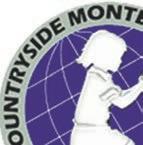



































































































PROFILES IN AN ANTON MEDIA GROUP SPECIAL SUPPLEMENT • APRIL 17 - 23, 2024 SOCIAL AND EMOTIONAL LEARNING PLUS Syosset principal’s podcast Remote and hybrid learning 247258 M Countryside Montessori School An Education Where Children Thrive Under the Guidance of Great Teaching in an Environment that Stimulates Creativity and Individual Potential! • Celebrating over 100 years of practice, research & worldwide recognition. • Fully equipped spacious classrooms offer an enriched curriculum for students 18 months - 6 years. • Fully affiliated with the American Montessori Society since 1998. • Early drop-off/ Extended day available. 354 Lakeville Rd, Great Neck • 516-466-8422 • www.CMSGN.com Register Now For 24/25 Spacious Playground Open House May 19 1-3 Low Teacher Student Ratio Large Classrooms


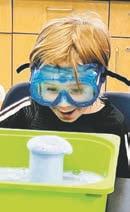


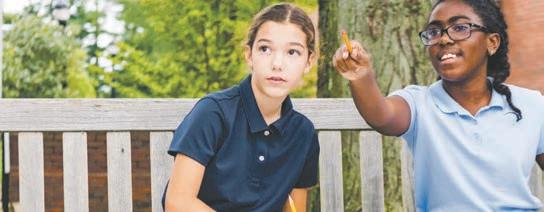


It’s the Green Vale di erence.
Green Vale is Long Island’s largest preeminent private school for Pre-Nursery to 8th Grade. But that’s not the only thing that makes us different. Families from some of NY’s top school districts choose Green Vale for our challenging, explorative curriculum; purposely joyful atmosphere; and our contagious smiles. GVS graduates excel at top secondary schools and elite colleges because, like our students, what makes Green Vale different is what also makes us special.
Visit us! Schedule a private tour or attend an event on campus.
2B APRIL 17 - 23, 2024 • PROFILES IN EDUCATION 250 VALENTINE’S LANE, OLD BROOKVILLE, NY greenvaleschool.org
246763 M
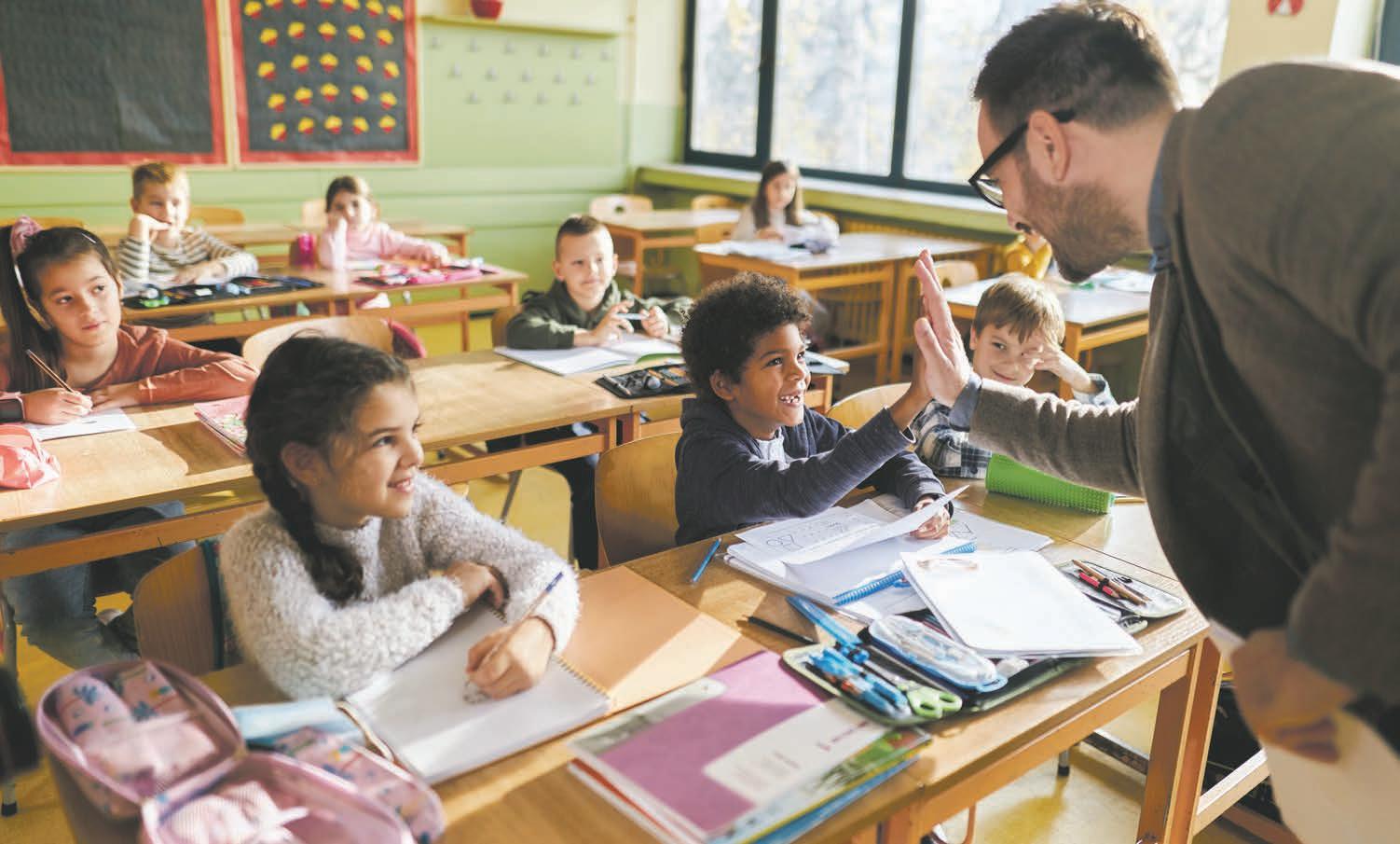
Social And Emotional Learning
BY ANTON MEDIA STAFF specialsections@antonmediagroup.com
Social and Emotional Learning (SEL) has gained increasing recognition in education as a fundamental component of holistic student development. SEL refers to the process through which individuals acquire and apply the knowledge, skills, and attitudes necessary to understand and manage emotions, establish and maintain positive relationships, make responsible decisions, and navigate social situations effectively. As schools and educators strive to meet the diverse needs of students and promote their overall well-being, SEL has emerged as a critical framework for fostering positive school climates, enhancing academic achievement, and preparing students for success in school and beyond.
At the heart of SEL are five core competencies identified by the Collaborative for Academic, Social, and Emotional Learning (CASEL):
Self-Awareness
The ability to recognize and understand one’s emotions, thoughts, and values, as
well as their influence on behavior and decision-making. Self-aware individuals are able to accurately assess their strengths and weaknesses, as well as their emotions and reactions in different situations.
Self-Management
The capacity to regulate emotions, thoughts, and behaviors in constructive ways, including managing stress, controlling impulses, and setting and achieving goals. Self-managed individuals demonstrate resilience, perseverance, and adaptability in the face of challenges and setbacks.
Social Awareness
The ability to empathize with others, recognize and appreciate diverse perspectives and cultures, and understand social norms and expectations. Socially aware individuals demonstrate empathy, compassion, and respect for others, as well as an awareness of social justice issues and the impact of their actions on others.
Relationship Skills
The capacity to establish and maintain
healthy and rewarding relationships with diverse individuals and groups, communicate effectively, collaborate with others, and resolve conflicts constructively. Individuals with strong relationship skills demonstrate empathy, active listening, cooperation, and teamwork.
Responsible Decisionmaking
The ability to make ethical, constructive choices about personal and social behavior, based on consideration of ethical standards, safety concerns, social norms, and the well-being of self and others. Responsible decision-makers demonstrate critical thinking, problem-solving, and ethical reasoning skills, as well as a commitment to personal integrity and social responsibility.
Implementing SEL effectively requires a comprehensive, multi-tiered approach that integrates SEL into the school culture, curriculum, and instructional practices. This may involve providing explicit instruction in SEL competencies, fostering supportive and inclusive
learning environments, promoting positive student-teacher relationships, and engaging families and communities in SEL initiatives.
Research has shown that SEL interventions yield numerous benefits for students, including improved academic achievement, enhanced social and emotional skills, reduced behavioral problems, and increased positive attitudes toward school. Moreover, SEL has been linked to long-term outcomes such as improved mental health, increased college and career readiness, and reduced involvement in risky behaviors.
Social and Emotional Learning (SEL) is a vital component of education that promotes the development of essential skills and competencies for success in school, work, and life. By fostering self-awareness, self-management, social awareness, relationship skills, and responsible decision-making, SEL empowers students to thrive academically, emotionally, and socially, and contributes to the creation of safe, supportive, and inclusive learning environments for all.
3B PROFILES IN EDUCATION • APRIL 17 - 23, 2024 COVER STORY
Photo Getty Images
Oyster Bay Teacher Publishes Book
New book provides innovative ways to teach ELA
BY JENNIFER CORR specialsections@antonmediagroup.com
Dr. Deirdre Faughey, an Oyster Bay High School English teacher, thinks outside the box when it comes to educating students.
“A teacher like her is exactly what you want in the classroom,” said Oyster Bay High School Principal Melissa Argaman. “She’s a lifelong learner herself. She’s collaborative and wants to share what she’s learned and she’s creative. I’m always impressed with the things that are going on in her classroom.”
And to share what she’s learned in the classroom with fellow educators, Dr. Faughey published her book, Restorative Literacy Practices: Cultivating Community in the Secondary ELA Classroom, last spring. She also recently wrote an article about one of her book chapters that was published in English in Texas, a journal published by the Texas Council of Teachers of English.
Her book features the possibilities and limitations of teaching in today’s schools, a problem-solving thought process, vivid anecdotes about students, their work and ability to collaborate, lesson plans, a list of
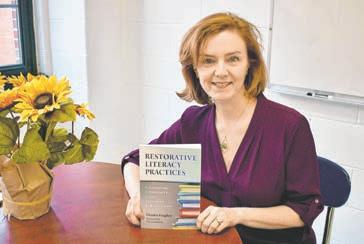
Dr. Deirdre Faughey, an English teacher at Oyster Bay High School, published her first book, Restorative Literacy Practices: Cultivating Community in the Secondary ELA Classroom. (Photo courtesy the Oyster Bay-East Norwich Central School District)
media to reference, and much more.
Before teaching English at Oyster Bay High School, Dr. Faughey earned her doctorate in curriculum and teaching from Columbia University and worked as a researcher for the New York City Department of Education. There, she interviewed students and faculty and learned about policy-level work.
“Once I got here and started teaching

again, I just was really excited about what I saw in my classroom and thinking about the stories I could tell from what I saw as the magical moments in my experiences with the students,” Dr. Faughey said. “I wanted to be able to share what I saw happening with students and talk about the ideas and the scholarship and the history of education that we could use to understand what was happening and just offer some new ideas to other teachers out there.”
Beyond publishing her new book, Dr. Faughey educates early career and student teachers as a night adjunct professor at SUNY Old Westbury.
“I can draw on all of this writing and give them really clear examples from the classroom on how it all comes together,” Dr. Faughey said. “I like being part of the mix of all of that, the intersection of teaching students and teaching teachers and continuing to think of what I can write and share about in the future.”
She has also traveled out of state to speak at conferences about her classroom innovations and research. Last November, she presented some of her research from the
book at the National Council of Teachers in English Conference in Ohio. In Nashville, she led a presentation to educators at the Literacy Association of Tennessee.
Among Dr. Faughey’s innovations in the classroom include assigning her students a project where they had to make their own movie. As a part of that project, she collaborated with the 3D printing club to have awards made for her students so that they could hold an award ceremony.
“She makes learning fun and she makes the kids get excited about these projects,” Argaman said. “They get excited about these projects and she taps into that creativity and gets involved.”
Dr. Faughey also uses the new innovation lab, known as the CoLab, where students can code, 3D print, build robotics, and collaborate.
“Deirdre has been one of those teachers who had taken advantage of that space and used it to inspire our kids, which is exactly why we built those spaces, to try to bring our building, which is very old, built in 1929, yet we have these 21st-century learning spaces in our building,” Argaman said.
Where Learning is Transformative
“Our daughter is now blossoming and thriving. Winston Prep is where she belongs: academically, socially and emotionally.”
–WINSTON PREP PARENT
Learn more about our programming for students with learning differences by registering for an Open House. Long Island Campus
4B APRIL 17 - 23, 2024 • PROFILES IN EDUCATION
the QR code to visit our Long Island Campus
Scan
246550 M

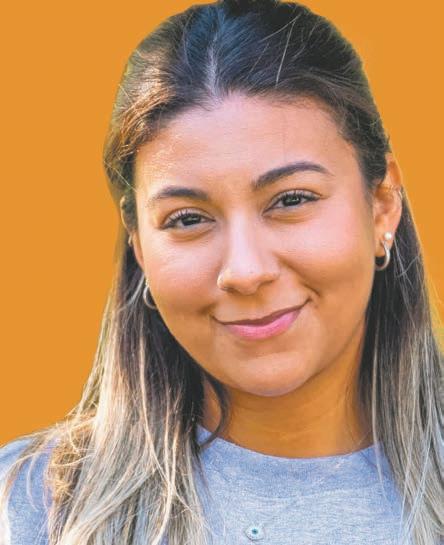
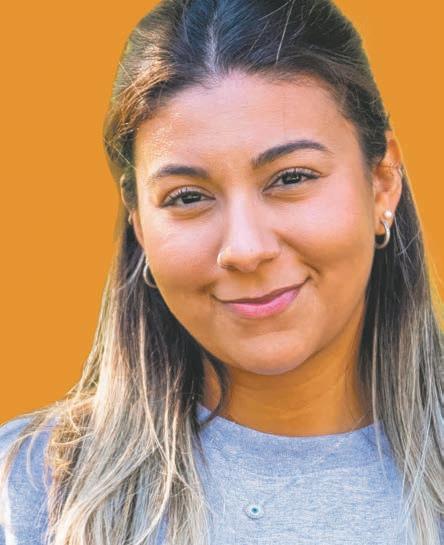
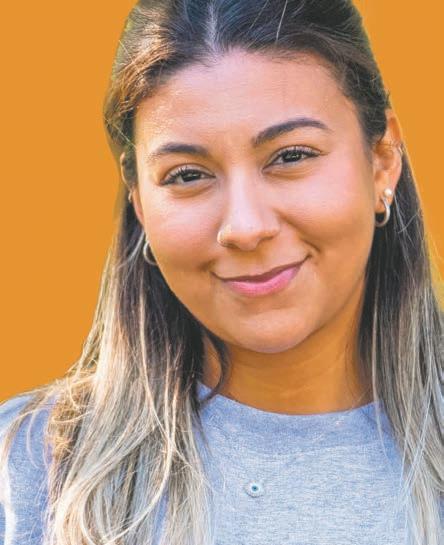
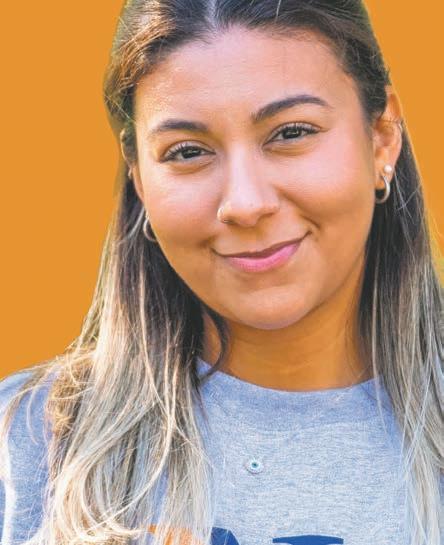
Make the and Transfer to Nassau Community College SMART CHOICE
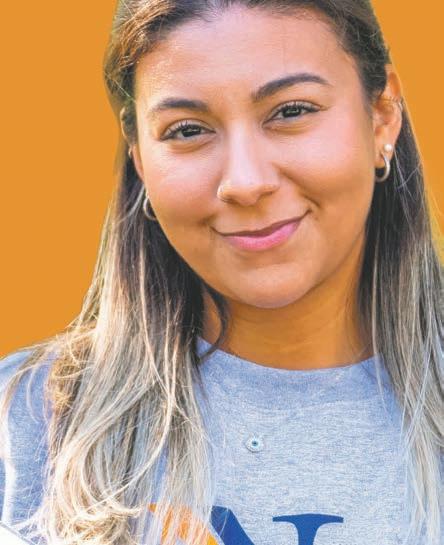

Nassau Community College is recognized as a top community college offering a quality, student-focused experience with 80+ academic programs. The

• Get ahead in your degree and complete core courses


• Receive extra guidance and support
• Save big with affordable tuition
516-572-7345 | ncc.edu


Apply today for summer as a visiting or new transfer student!




Classes start May 28
Register now: ncc.edu/summer
5B PROFILES IN EDUCATION • APRIL 17 - 23, 2024
smart choice. Nassau Community College One Education
Garden
Drive,
City New York 11530
243598 M
Syosset Principal Celebrates 200th Episode Of Podcast
BY JENNIFER CORR specialsections@antonmediagroup.com
On April 10, “The College Admissions Process Podcast” reached its 200th episode, where Dr. John Durante, principal of Syosset High School, spoke with Rich Clark, the assistant vice provost and executive director of admission at Georgia Tech University, about Clark’s book The Truth About College Admissions, a comprehensive guide for families during the admission process.
“It’s surreal,” Dr. Durante said. “As a high school principal, we help so many families with the college process, with selecting courses through their four years of high school. But what happened with me, when I went through the process with my own daughters, I felt firsthand the stress that parents talked to me about, but this time it was with my own daughters.” During this time, it occurred to Dr. Durante that not all schools have access to robust counseling programs.
“I came up with the idea because there are so many college admissions reps that were so good to me and my family that if each episode represented a conversation with them about their schools, a little bit of
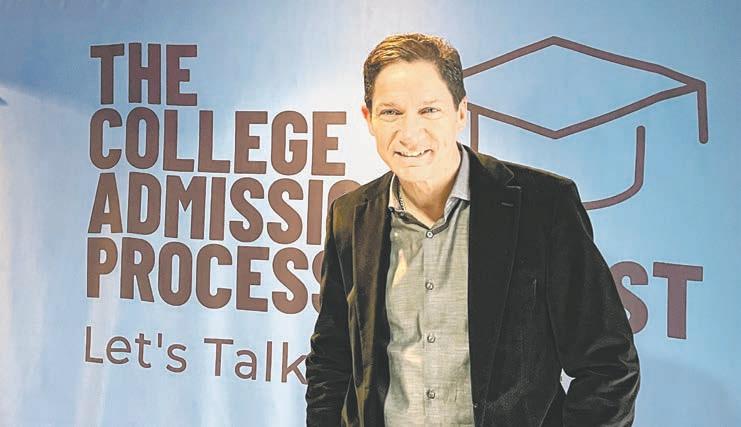
an insight about their application process, tips for parents and then of course advice for students and parents going through it, I thought I might be onto something,” Dr. Durante said.
The podcast has also caught on among colleges and universities throughout the United States and beyond, with directors of
admissions, deans of admissions and presidents participating in the podcast to share their expertise, as well as provide an insight to what their institutions have to offer.
“It’s just been a real blessing and I’m just so happy to do it,” Dr. Durante said.
When asked what are the top issues facing college applicants today, Dr. Durante
said it was the myth that when a college or university states it’s “test optional,” that they’re not being truthful.
“The reality is that, some of the [Ivy League’s] we know, such as Dartmouth, just went back to requiring tests,” Dr. Durante said. “And there are states like Florida where their governing body requires test scores, but schools that claim to be test-optional really mean it.”
Dr. Durante has been with Syosset High School since 1994, serving initially as a teacher of world languages and assistant principal before becoming principal at Syosset High School 13 years ago.
“Anything that I’ve ever encountered in life, I always want to be the best and work with the best,” Dr. Durante said. “It’s been an honor to work in a school district like Syosset because you have a very educated community that is pro-education and everything that we try to do during the four short years that we have their children at Syosset High School.”
Listen on Apple Podcasts, Spotify, Google Podcasts, Castro or RSS Feed. For more information, including an alphabetical list of colleges and universities featured in the podcast, visit www.collegeadmissionstalk.com.
Remote And Hybrid Learning
BY ANTON MEDIA STAFF specialsections@antonmediagroup.com
Remote and hybrid learning have emerged as pivotal educational paradigms in response to the COVID-19 pandemic, reshaping the landscape of education and challenging traditional notions of teaching and learning. These models, characterized by a combination of online instruction and in-person components, offer both opportunities and challenges for students, educators, and educational institutions.
One of the key advantages of remote and hybrid learning is its flexibility, allowing students to access educational resources and engage in learning activities from virtually anywhere with an internet connection. This flexibility is particularly beneficial for students with diverse learning needs, those living in remote areas, or those facing physical or logistical barriers to attending traditional brick-andmortar schools. Additionally, remote and hybrid learning can facilitate personalized learning experiences, enabling students to progress at their own pace and access a wider range of educational materials tailored to their interests and abilities.
Remote and hybrid learning models have spurred innovation in educational technology, leading to the development of


interactive digital platforms, educational apps, and multimedia resources designed to enhance student engagement and facilitate collaborative learning experiences. These digital tools offer immersive and interactive learning, allowing students to participate in virtual labs, simulations, and discussions that transcend the limitations of traditional classroom settings.
Remote and hybrid learning also present significant challenges, particularly in terms of digital equity and access to technology. The shift to online learning has highlighted existing disparities in access to reliable internet connectivity, digital devices,
and technical support, disproportionately affecting students from low-income households, rural communities, and marginalized populations. Addressing these inequities requires concerted efforts from policymakers, educators, and stakeholders to ensure that all students have equitable access to the tools and resources needed to participate fully in remote and hybrid learning environments.
Remote and hybrid learning pose unique challenges for educators, who must adapt their teaching strategies and pedagogical approaches to effectively engage students in virtual or blended
learning settings. Educators must navigate issues such as maintaining student motivation and attention during online instruction, fostering meaningful interactions and collaboration among students, and providing timely feedback and support in virtual learning environments. Professional development and training opportunities are essential to help educators develop the skills and competencies needed to thrive in remote and hybrid teaching environments and effectively leverage educational technology to enhance student learning outcomes.
Remote and hybrid learning have become integral components of contemporary education, offering flexibility, innovation, and opportunities for personalized learning experiences. Addressing the challenges associated with digital equity, educator preparedness, and student engagement is essential to ensure that remote and hybrid learning models are inclusive, effective, and equitable for all learners. By leveraging the potential of educational technology and embracing practices in online pedagogy, educators and educational institutions can harness the transformative power of remote and hybrid learning to empower students and prepare them for success in the digital age.
6B APRIL 17 - 23, 2024 • PROFILES IN EDUCATION
Dr. John Durante (Photo courtesy the Durante family)
Photo Getty Images
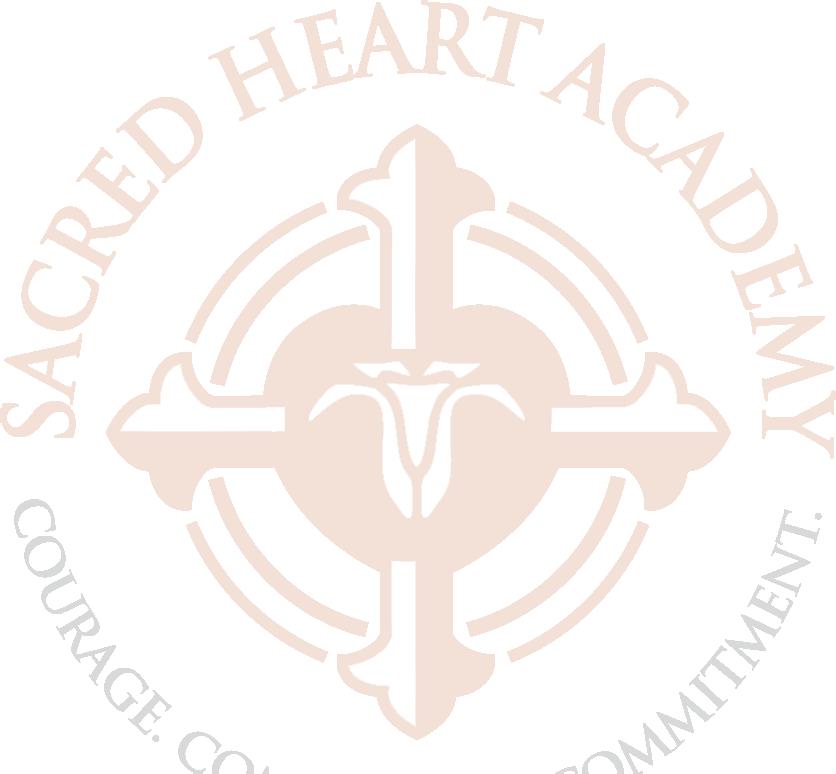
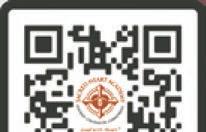


7B PROFILES IN EDUCATION • APRIL 17 - 23, 2024
EXPLORE
SPRING
SCAN THE QR CODE OR CALL 516-483-7383 TO RSVP 246966 M
7TH & 8TH GRADE GIRLS ARE INVITED TO SACRED HEART ACADEMY A CATHOLIC, ALL-GIRLS, COLLEGE PREPARATORY HIGH SCHOOL
SHA
OPEN HOUSE WEDNESDAY, MAY 8TH, 7PM
Legislation Protects Debt Relief
Borrowers urged to apply for “SAVE Plan”
SBY ANTON MEDIA STAFF specialsections@antonmediagroup.com
enator Kirsten Gillibrand held a virtual press conference on Tuesday, April 2, to announce the Codifying SAVE Plan Act, legislation that would codify President Biden’s income-driven repayment program, known as the Saving on a Valuable Education (SAVE) Plan, into law and protect it from being rolled back under future administrations. The SAVE Plan currently has more than 7.7 million federal student loan borrowers enrolled, and New Yorkers have had over $63 million forgiven under the plan.
“The SAVE Plan is the most affordable student loan repayment plan in history and a lifeline for millions of borrowers –allowing them to live without the burden of exorbitant monthly payments hanging over their heads,” said Gillibrand. “The Codifying SAVE Plan Act would ensure that the SAVE Plan remains in place and safeguards a much-needed path to federal student loan forgiveness. I’m proud to fight so the SAVE Plan is protected for future generations, and I urge New York borrowers to enroll in the plan today.”
President Biden’s SAVE Plan was introduced in August 2023 and has helped
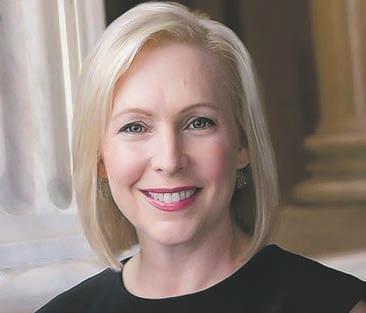
millions of borrowers lower their monthly payments. Under the SAVE Plan, borrowers with undergraduate loans are getting their payments reduced from 10 percent to 5 percent of their discretionary income, and those earning under 225 percent of the federal poverty line have had their monthly payments lowered to $0. The SAVE Plan has also canceled the loans of 150,000 borrowers to date. Borrowers can apply for the SAVE Plan to lower the cost of their student loan payments (www.studentaid.gov/save).
Gillibrand has been a leader in taking



action to fix the student loan system and support borrowers. She leads the What You Can Do for Your Country Act, which would allow borrowers to have half of their federal student loan balance forgiven after five years of public service and make sure millions of Americans are eligible for the loan forgiveness they have earned. She also successfully urged the Biden administration to strengthen our
nation’s Public Service Loan Forgiveness program, which enabled hundreds of thousands of public servants to get their student debt discharged. Gillibrand has pushed to encourage our nation’s best and brightest to work in government by offering free college in exchange for public service in cyber and tech disciplines through her Cyber Service Academy scholarship program.
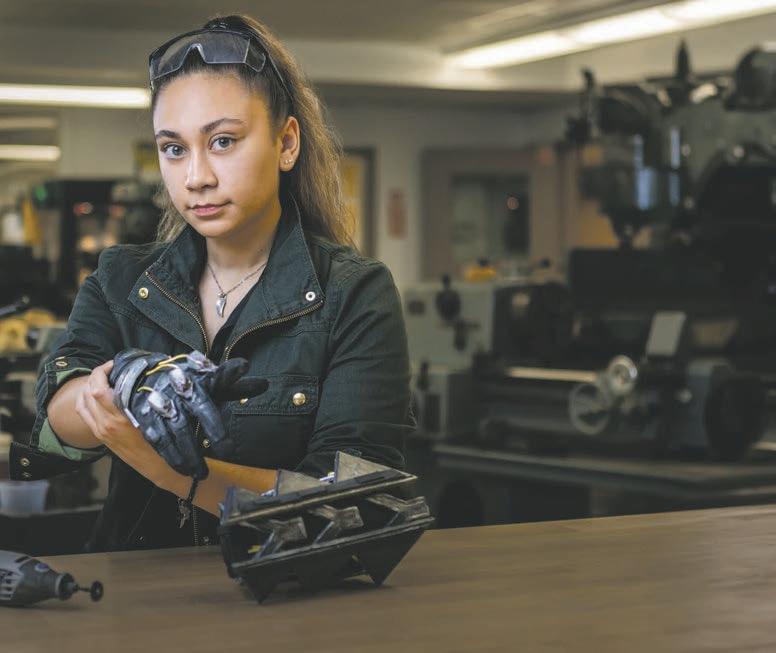
8B APRIL 17 - 23, 2024 • PROFILES IN EDUCATION
Senator Kirsten Gillibrand
THERE’S A PLACE FOR YOU AT at our undergraduate information sessions. NYIT.EDU/ANTON Register Today Join r upcoming e v ents MARK YOUR CALENDARS: April 19, 2 p.m., LI and NYC May 11, 2 p.m., LI and NYC May 29, 5 p.m., Virtual 243821 M
Photo Getty Images
LIU Vet Medicine Earns Accreditation
The recently completed Long Island University College of Veterinary Medicine, designed by SBLM Architects, pairs the school’s extensive educational resources with state-ofthe-art technology. Since opening last year, the veterinary college has already earned a critical accreditation from the American Veterinary Medical Association (AVMA).
The new veterinary college, comprised of the Veterinary Learning Center (VLC) and Teaching Research Center (TRC), was designed to be architecturally contextual with the rest of Long Island University’s campus. Both mid-rise buildings echo Long Island University’s neo-classical style with red brick facades, white paned double-hung windows, and white ornamental accents.
The Veterinary Learning Center is situated in an approximately 30,000-square-foot former warehouse that has been completely transformed to accommodate the newest technologies required in the high-scale program. First-year students study primarily through virtual programs, which

include anatomy and necropsy labs. In addition, the students have access to the Center’s trim rooms, histopathology labs, and multi-head microscope rooms.
The newly constructed 32,000-squarefoot Teaching Research Center contains three 150-seat lecture halls and more than 5,000 square feet of technical
labs, including a clinical skills lab. The curriculum at the Teaching Research Center addresses infectious diseases, comparative medicine and therapeutics, and comprehensive veterinary medical education. There is also a small animal simulation suite that features examination rooms, surgical suites, and a medical imaging center.
“This was an ambitious, two-part project initially conceived in 2017 and temporarily delayed by the pandemic,” said John Kelly, the SBLM principal who led the design team. “Our mission was to create educational spaces that would help LIU develop its far-reaching program and eventually meet the rigorous criteria of the AVMA, for which only 30 institutions in the U.S. qualify.”
Long Island University spent approximately $53 million on the design and construction of the College of Veterinary Medicine. New York State contributed approximately $16 million.
The veterinary college, which opened with 150 students, has tripled its registration within the first year and currently has 450 enrolled students.
—SBLM ARCHITECTS/LIU

9B PROFILES IN EDUCATION • APRIL 17 - 23, 2024
• No previous German necessary • Minimum age: 6 years • Low tuition • Locations: Manhattan (Mondays) Garden City (Tuesdays and Fridays) AFTERSCHOOL PROGRAM for more information email: kidslearngerman@aol.com or go to german-american-school.org Classes Start Second week in September. German Lessons Since 1897 NY State Accredited Language Program 246913 M
The Veterinary Learning Center. (Photo provided by SBLM Architects/LIU)
Healthy School Meals For All
Before the COVID-19 pandemic, nearly 30 million children participated in the school meals program, and most of the participants (nearly 80 percent) are from low-income households. When the pandemic shuttered schools and businesses across the country, schools found themselves feeding not just students, but entire communities. The U.S. Department of Agriculture (USDA) issued a series of waivers to allow schools to operate in this new normal; one of the waivers allowed schools to provide a free breakfast and lunch to every student through June 2022, effectively providing healthy school meals for all. We must ensure that healthy school meals for all are made permanent.
What are Healthy School Meals for All?
Healthy school meals for all allow all enrolled children in a school that operates the National School Lunch Program or School Breakfast Program to receive free breakfast and free lunch, regardless of their family’s income. Healthy school meals for all negate the need for families to apply or for schools to verify eligibility for the programs and give flexibility to school nutrition programs to keep feeding kids no matter what the new school day structure looks like.
Healthy School Meals for All Promote Nutrition
• A systematic review examining free meals for all policies found that free meals for all are positively associated with school meal participation, and in most cases, are positively associated with diet quality,
food security, and academic performance. It is reasonable to assume that healthy school meals for all could have the same positive impact.
• By negating the need to stand in line to pay for meals, healthy school meals for all allow children more time to eat their meals.
Healthy School Meals for All Advance Equity
• Healthy school meals for all remove stigma from children participating in the program, provide equitable access to healthy meals, and remove draconian measures schools may take to feed children who cannot pay. A recent report found that when all students have access to free meals, perceptions of bullying and fighting decrease, and kids that previously were income-eligible for free- or reduced-priced meals felt safer.
• Healthy school meals for all provides assurance that children will receive free meals at school, even if their family income fluctuates in and out of typical eligibility requirements for free meals.
Healthy school meals for all ensure that children who might be on the edges of eligibility, or children who are experiencing homelessness, have recently immigrated, have caregivers who may struggle with administrative paperwork, or are in foster care do not fall through the cracks. Families are still in crisis as a result of the pandemic’s economic fallout—a recent poll found that 7 to 13 percent of adults

with children reported that their children sometimes or often didn’t eat enough in the last seven days because they couldn’t afford it.
Healthy School Meals for All Support School Nutrition Programs
• Healthy school meals for all help ensure that schools can continue to operate the federal child nutrition programs in a moment of unprecedented financial losses. In school year 2017-2018, 75 percent of school districts had unpaid meal debt. By November 2020, programs reported a collective loss of $2.1 billion.
• Healthy school meals for all reduce administrative burden on school food service staff, provide a steady budget for school food service programs so they may remain fiscally solvent, eliminate unpaid meal balances, and take pressure off school food service programs to increase revenue by serving foods that may be lower in nutritional quality. This allows programs to focus on their primary function: feeding children healthy meals.
—From the Center for Science in the Public Interest
Study Abroad Opportunities For High School Students
A non-profit, public benefit organization, ASSE, is dedicated to promoting closer ties of friendship between the United States and other countries by fostering intercultural understanding through youth exchange programs.
High school students, 15 to 18 years old, qualify on the basis of academic performance, character references and a genuine desire to experience life abroad with a volunteer host family. Students choose their host country, and prior knowledge of the country’s language is not a requirement. Scholarships are available and are based on academic performance, leadership skills and financial need. Families abroad are carefully screened, and students do not need to know the language of the host country prior to departure but will acquire the language skills through
experiencing the day-to-day local culture and attending regular high school classes, along with their new teenage friends.
ASSE also provides the experience of a lifetime to American families who are interested in hosting an international student from Spain, Italy, Germany, Ukraine, Thailand, Japan, and many other countries. These exceptional young students will attend the local American high school for an academic year or semester and participate in the host family’s daily activities.
Students or families interested in learning more about becoming an ASSE exchange student or host family should contact Saphia Lesch at 1-800-4730696, visit www.asse.com or send an email to asseusamidwest@asse.com.
—ASSE International

10B APRIL 17 - 23, 2024 • PROFILES IN EDUCATION
ASSE International Student Exchange Programs (ASSE) is offering qualified high school students a unique opportunity to explore the world by spending an academic year, semester or summer in Europe, Asia, North or South America, Australia or South Africa. (Photo provided by ASSE International)
Photo Getty Images
MaRcH 23 - JuLy 7 URB
1 30 works by 37 ar tists spanning
ve decadesof groundbreaking art
Jean-Michel BaSqUiAt
JANE DiCkSoN
Keith HaRiNg
linus cOrAgGiO
TOM OtTeRnEsS
JOHN “CRaSH” MaToS
MARK KoStAbI
MARTIN WoNg
Judy GlAnTzMaN
Christopher "DAZE" ElLiS
james rOmBeRgEr
HANK 0’NeAl
RICHARD HaMbLeToN
Kenny ScHaRf
timothy GrEeNfIeLd-SaNdErS
LEE QuIñOnEs
Kiely JeNkInS
MARTHA CoOpEr
WALTER RoBiNsOn
DONALD “ DONDI ” WhItE
SCOT BoRoFsKy
stephen LaCk
MIKE BiDlO
Save the Date
Tseng KwOnG ChI
ronnie cUtRoNe
FRED "Fab 5 Freddy" BrAtHwAiTe
ricky pOwElL
Rodney Alan GrEeNbLaT
CHRISTOPHER HART ChAmBeRs
Angel "LA2" OrTiZ
e Museum Ball - June 8
eric hAzE
AL DiAz
JameS BrOwN
JUDY RiFkA
ken HiRaTsUkA
David WoJnArOwIcZ
RICK PrOl
Museum Hours: Tue-Sun 11am-4:45pm
Café Hours: Tue-Sun 12-4pm
Info & Tickets : NassauMuseum.org




11B PROFILES IN EDUCATION • APRIL 17 - 23, 2024
NA e volu ion A A A RTR T t t
One Mus eum D r ive, Ros lyn Harbor N Y 115 76 5 16.484.933 8
NASSAU COUNTY MUSEUM OF ART

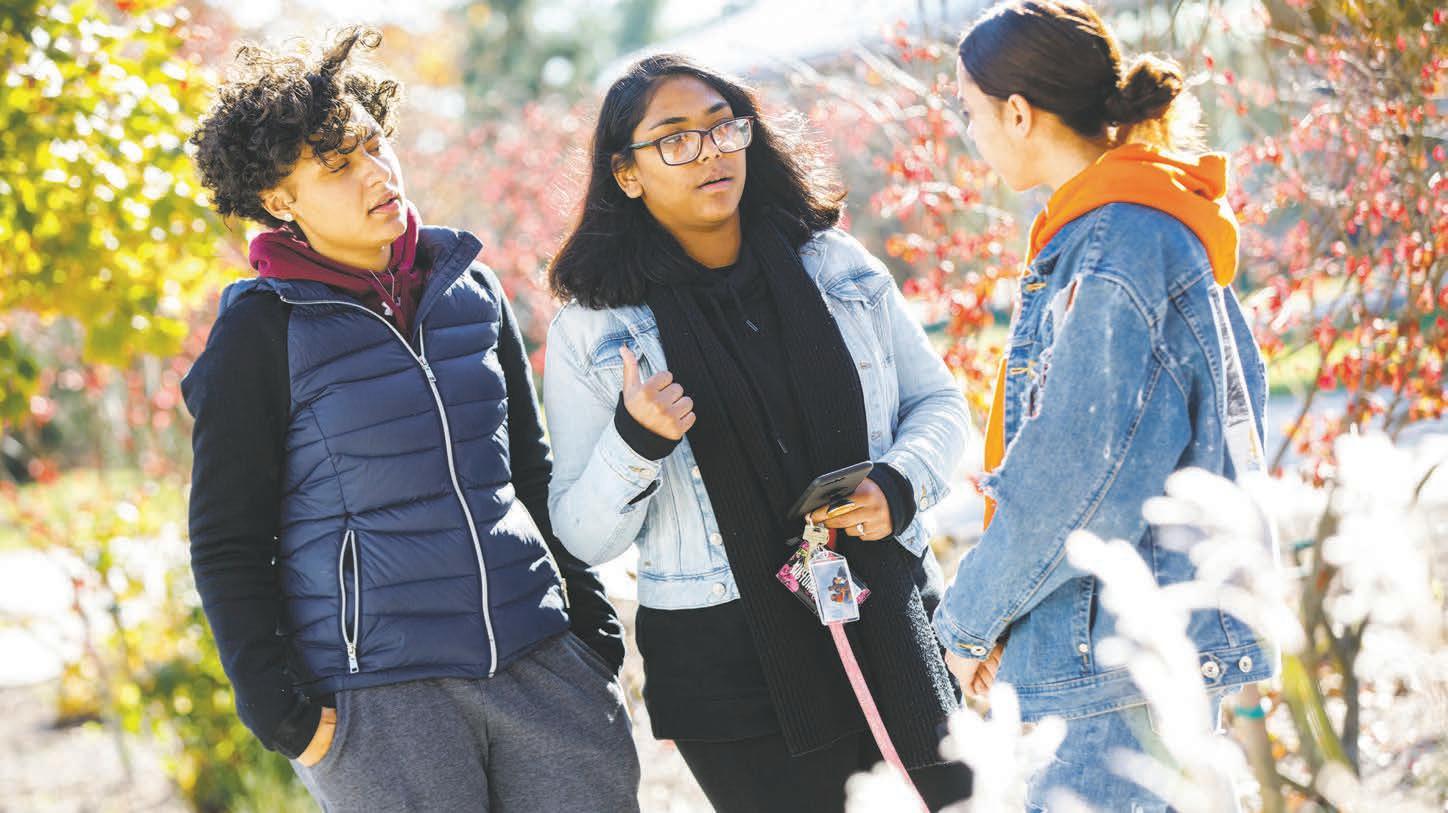
From our intentionally small classes to the skills of our excellent faculty, everything we offer is geared to enrich your experience and prepare you to pursue your own big dream. With nearly 60 undergraduate and graduate degrees in business, education, and the arts and sciences, we provide a solid educational foundation so you have the confidence in your own abilities to succeed at whatever you choose to undertake — to own your future.



www.oldwestbury.edu
APRIL 17 - 23, 2024 • PROFILES IN EDUCATION
OWN YOUR
For more information or to make reservations, contact: (516) 876-3200, tours@oldwestbury.edu OPEN HOUSE Saturday, April 20, 2024 9:00 a.m. - noon Start owning your future today. Nearly 70 majors available Affordable SUNY tuition 36,000 successful alumni $ 22:1 Small class sizes Contact us: Full page - Anton Newspapers_Open House10x11.indd 1 4/1/2024 4:29:37 PM 247160 M
When you dream big, anything can happen.
FUTURE
























































































































































